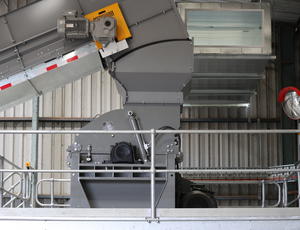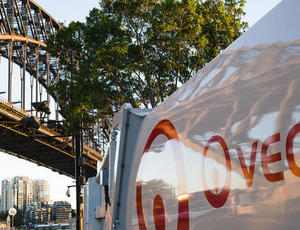Read a snapshot of some of the policy and regulatory updates relevant to the environment in the October to December 2024 quarter across Australia and New Zealand.
Only got 60 secs? Here’s a quick recap
- More single use plastic bans ahead
- New Federal EPA in doubt
- Battery stewardship progress
- Kerbside bins: standard list for what goes in
- FOGO mandates for NSW
More single use plastic bans ahead:
The NSW Government is reviewing community and industry feedback on new proposals to tackle problematic plastic waste, promote more reusable and recyclable alternatives, and help NSW reduce plastic litter by 30% by 2025. Proposed phase-outs include plastic lollipop sticks, pizza savers, and plastic food tags for bread, bakery and pantry items, as well as introducing design standards for single-use plastic cups, food containers and their lids to ensure they are recyclable. Tasmania is also proposing phase-out of several problematic single-use plastics in 2025, and the South Australian Government is reviewing the impact and effectiveness of their Single-use and Other Plastic Products (Waste Avoidance) Act 2020. The soon-to-be-released National Roadmap: Harmonising action on problematic and unnecessary plastics aims to increase consistency across state and territories
Veolia’s observations
Veolia welcomes action to reduce litter, and agrees that bans of single use items would benefit from a nationally consistent approach. As with all products, careful consideration at the design phase is essential to ensure products can be effectively managed at end-of-life. Rather than focusing just on plastic items, a wider view of all litter items and materials is required. In the quest to reduce single use plastic items, it is important that we don’t replace one product with another product that has the same or lesser environmental credentials, for example paper-based items containing persistent chemicals, or ‘compostable’ items for which no separate collection system is available.
New Federal EPA in doubt
The future of the proposed federal environmental protection agency (‘Environment Protection Australia’) is uncertain as government agreement on the legislation was unable to be reached. As part of the Nature Positive reforms, the new federal regulatory agency was planned to commence from July 2025, carrying out functions including environmental investigations, issuing permits for activities that may impact threatened species, examining illegal land clearing and carbon offset conditions, and enforcing compliance with national environment laws including the Recycling and Waste Reduction Act and Hazardous Waste Act.
Veolia’s observations
Veolia supports the streamlining of approvals processes, improved environmental data transparency and the harmonisation of environmental laws between different states and territories. In the absence of a federal EPA, harmonisation in areas such as food and organic waste, energy from waste, landfill levies and packaging circularity should still be pursued, to create certainty for businesses and enable progress towards Australian circular economy goals.
Battery stewardship progress
Fires caused by batteries are an immediate and serious risk at recycling facilities, in waste collection vehicles and at homes, with an estimated 10,000 to 12,000 battery-related fires a year occurring in Australia. An increasing number of products contain embedded batteries such as vapes, e-bikes and e-scooters. At the recent Environment Ministers Meeting, the need for urgent product stewardship arrangements for batteries was discussed, with state-based schemes underway. NSW has committed to introducing legislation in 2025, requiring battery suppliers to participate in a mandatory scheme to ensure batteries are safely managed throughout their lifecycle, including contributing to more accessible battery disposal options for householders.
Veolia’s observations
Veolia operates within regulatory frameworks overseas in Europe, the UK and USA where mandated battery collection and recycling is extensively and successfully deployed. Urgent action is needed in Australia to divert batteries from conventional waste streams, provide accessible disposal options, establish and enforce safety practices and improve public understanding of risks. Whilst a national framework is preferred, immediate state-based action is realistically the fastest way to address this urgent issue.
Kerbside bins: standard list for what goes in
Environment Ministers around Australia, with the exception of Queensland, have agreed to create a roadmap to harmonise kerbside collection systems. This will specify a minimum set of items that can be placed in recycling bins, aiming to reduce recycling confusion and make recycling easier for households. Further engagement and consultation will consider the criteria necessary for adding soft plastics into household recycling bins.
Veolia’s observations
A recent national survey commissioned by Veolia showed that many Australians are struggling to work out which bin to put their household waste in, getting it wrong more than 40% of the time. Veolia supports harmonisation of household waste and recycling services across Australian states and territories, to make it easier for people to sort materials at home and to optimise the quality of material received at recycling facilities and the subsequent quality of recycled commodities produced. Extensive community education is vital to ensuring the right items are placed in the right bins. Soft plastics collection can only be rolled out at scale once a fully funded product stewardship program is finalised and processing challenges are resolved.
FOGO mandates for NSW
The NSW Government has introduced a Bill to mandate the collection of source-separated food waste from households from 2030, via weekly collection of either a food scraps bin, or a combined food and garden organics (FOGO) bin. Other proposed mandates in the Bill include collection of organic waste from businesses (phased in from 2026), and compulsory reporting by supermarkets on food donations.
Veolia’s observations
ports mandating the separation and collection of organic waste at its source across the nation, along with ensuring that sufficient new organic waste recycling infrastructure is developed. Protecting the quality of feedstock entering organics processing facilities, by focusing heavily on contamination reduction, will be of paramount importance as households transition from garden organics to FOGO. This requires significant investment in community education and clear consistent messaging about what can go into the FOGO or FO bin. This is necessary to ensure the ongoing quality of, and confidence in, compost and other products produced from organic waste.





